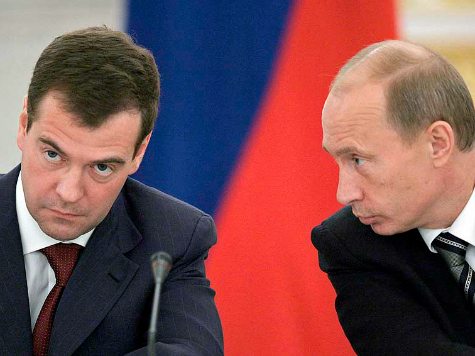
Russian Prime Minister Dmitry Medvedev and Russian President Vladimir Putin’s spokesman Dmitry Peskov lashed out at Maxim Ksenzov, the deputy head of the government’s telecommunications watchdog Roskomnadzor, after he said Russia should ban the popular social media network Twitter.
Medvedev is an active user of Facebook and used the platform to criticize Ksenov. He said “officials, responsible for the development of the industry should sometimes use their brains and not give interviews announcing the closure of social networking sites.” Peskov urged caution to officials during interviews.
Dmitry Peskov, Putin’s spokesman, told the pro-government Izvestia newspaper that “monitoring bodies” should avoid exploiting legal loopholes to persecute the media and social networking sites but that “social networking sites must show maximum responsibility on the subject of abiding by the laws.”
However, these reactions did little to calm fears in Russia over censorship. Ukraine ousted Russia-backed president Viktor Yanukovych in February, and Russia made the move to annex Crimea from Ukraine. Between February 22 and March 21, Putin took many steps to silence opposition media and independent bloggers. On March 12, Lenta.ru’s chief edutor, Galina Timchenko, resigned, but employees said she was fired because she refused to censor an interview with the leader of Right Sector, a group Moscow designated as a terror group. In retaliation for this behavior, many of the writers, editors, and other employees resigned in protest of censorship.
On March 14, Moscow closed Grani.ru, Kasparov.ru, and Yezhednevny Zhurnal. Garry Kasparov, the former chess master, is in charge of Kasparov.ru and has appeared on numerous US TV shows to criticize Russia and Putin.
Russia passed a law on February 1 that allows a prosecutor to shut down any website without a court order that incites hatred or calls for mass protests without permission. Moscow took it a step further on May 5 when a law was passed to ban “profanity” in the arts, which includes blogging.
Under another law also signed Monday, bloggers with over 3,000 daily pages views will be subject to hefty fines for using profanities beginning in August, when they will be effectively equated with media outlets.

COMMENTS
Please let us know if you're having issues with commenting.